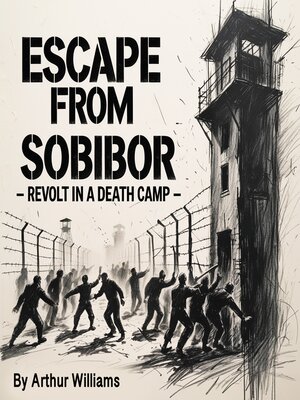
Sign up to save your library
With an OverDrive account, you can save your favorite libraries for at-a-glance information about availability. Find out more about OverDrive accounts.
Find this title in Libby, the library reading app by OverDrive.



Search for a digital library with this title
Title found at these libraries:
| Library Name | Distance |
|---|---|
| Loading... |
This audiobook is narrated by a digital voice.
In the remote forests of eastern Poland, hidden behind a facade of normalcy and deception, stood one of Nazi Germany's most sinister creations - Sobibor extermination camp. Constructed in early 1942 as part of Operation Reinhard, the systematic plan to murder the Jews of occupied Poland, Sobibor was designed with a single, horrific purpose: the industrial-scale killing of human beings. Unlike concentration camps that served multiple functions including forced labor, Sobibor existed solely to transform living people into corpses as efficiently as possible. The camp's very architecture embodied the Nazi vision of mechanized murder, with railway lines leading directly to gas chambers disguised as shower facilities, and carefully planned deception protocols that kept victims calm until the final moments of their lives.
The location of Sobibor was chosen with characteristic Nazi attention to detail and cruel efficiency. Situated near the village of Sobibor in the Lublin district of occupied Poland, the camp was positioned along a railway line that connected it to major population centers while remaining sufficiently isolated to maintain secrecy about its true purpose. The surrounding forest provided natural concealment from aerial observation while offering convenient disposal sites for the enormous quantities of human remains that the camp's operations would generate. The Nazi planners understood that the success of their genocidal enterprise depended not only on killing efficiency but also on maintaining the deception that convinced victims to cooperate with their own destruction.







